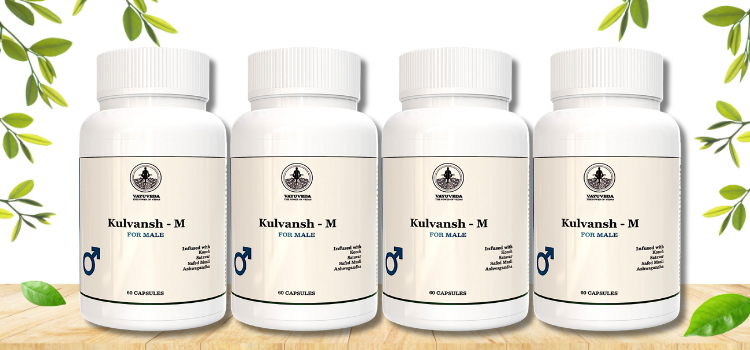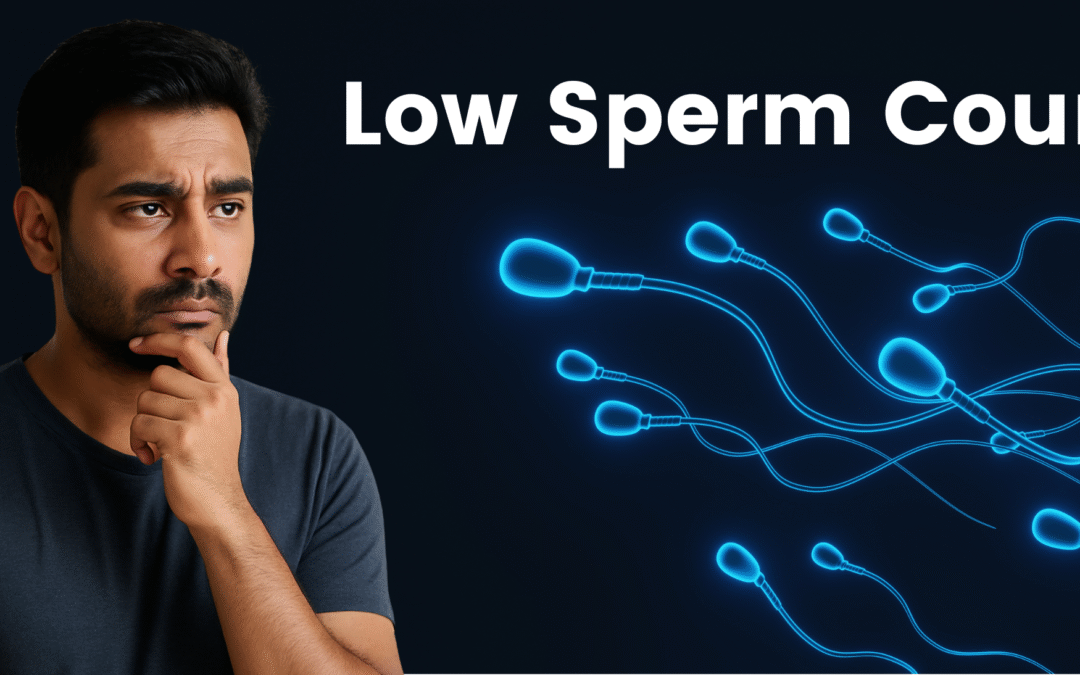Discover the causes and symptoms of low sperm count in men. Learn about Ayurvedic treatment options, natural remedies, and diet changes to improve male fertility
Introduction
Male infertility is more common than many people realise, and one of the leading contributors is low sperm count (also known as oligospermia). While assisted reproductive techniques like IVF and IUI are often suggested, many couples today are exploring natural and holistic approaches through Ayurveda.
This blog will help you understand:
- What causes low sperm count
- Signs and symptoms to look out for
- The Ayurvedic understanding of male fertility
- Effective herbs, diet, and lifestyle practices
- A trusted Ayurvedic formulation to consider
What Is Low Sperm Count?
Low sperm count refers to a condition where the semen a man ejaculates contains fewer than 15 million sperm per millilitre. This significantly reduces the chances of the sperm reaching and fertilising the egg, thus making natural conception difficult.
Symptoms of Low Sperm Count
Most men discover low sperm count only after struggling to conceive. However, some symptoms can indicate the issue early:
- Difficulty in conceiving despite regular intercourse
- Reduced sexual desire
- Erectile dysfunction
- Pain or swelling in the testicular area
- Hormonal imbalance, fatigue, or emotional stress
What Causes Low Sperm Count?
There are several physical, environmental, and lifestyle-related causes:
- Varicocele (swelling of veins within the scrotum)
- Exposure to toxins, heavy metals, and pesticides
- Use of tobacco, alcohol, or recreational drugs
- Obesity and poor dietary habits
- Hormonal disorders or infections
- Frequent use of laptops/mobiles near the groin area
- Chronic stress or poor sleep quality
Ayurvedic Perspective on Male Fertility
In Ayurveda, male fertility is governed by the quality of Shukra Dhatu, the reproductive tissue responsible for semen production. Low sperm count is believed to occur due to:
- Imbalance in Vata and Pitta doshas
- Weak Agni (digestive fire), leading to poor tissue nutrition
- Accumulation of Ama (toxins) in the reproductive system
Ayurveda emphasises detoxification, strengthening Agni, and restoring balance to nourish and rejuvenate the Shukra Dhatu.
Effective Ayurvedic Herbs to Improve Sperm Count
- Ashwagandha (Withania somnifera)
- Helps increase testosterone, reduce cortisol, and improve sperm quality.
- Shilajit
- Enhances stamina, fertility, and mitochondrial function.
- Safed Musli (Chlorophytum borivilianum)
- A potent aphrodisiac that supports sperm volume and motility.
- Gokshura (Tribulus terrestris)
- Promotes hormonal balance and reproductive vitality.
- Kapikacchu (Mucuna pruriens)
- Enhances sperm motility and count, and reduces stress-induced infertility.
- Vidarikand (Pueraria tuberosa)
Rejuvenates reproductive tissues and promotes fertility.
Diet & Lifestyle Recommendations

Foods to Include:
- A2 cow milk, ghee, and almonds
- Dates, bananas, pomegranate
- Pumpkin seeds, walnuts
- Fresh fruits and vegetables
- Moong dal and desi cow butter
Avoid:
- Smoking and alcohol
- Processed and deep-fried foods
- Overuse of plastics
- Excessive use of heat near the groin (hot baths, tight underwear)
Daily Practices:
- Yoga asanas: Vajrasana, Bhujangasana, Dhanurasana
- Pranayama: Anulom-Vilom, Bhramari
- Regular sleep cycle and mental relaxation
- Self-massage (Abhyanga) with warm sesame oil to reduce Vata
Ayurvedic Recommendation: Kulvansh for Male

For individuals facing low sperm count, weak reproductive strength, or stress-related fertility issues, a trusted Ayurvedic solution is Kulvansh for Male. Crafted using the time-honoured Bhavna Vidhi, this formulation processes classical Ayurvedic herbs with herbal extracts and potent decoctions that enhance their effectiveness at the cellular level. The Bhavna method ensures better absorption, faster action, and deeper rejuvenation of Shukra Dhatu
Kulvansh for Male focuses on addressing the root causes — balancing doshas, rebuilding reproductive strength, and naturally restoring fertility in men. Ayurvedic experts often recommend it as a 4-month wellness course for holistic support.
Final Thoughts:
Infertility in men is no longer a rare issue — but it is also not without solutions. Ancient systems like Ayurveda offer more than just treatment — they offer restoration, detoxification, and rejuvenation of the entire reproductive ecosystem. By making mindful changes to your lifestyle, eating habits, and exploring time-tested herbal support, many men have found hope where modern options have failed.
